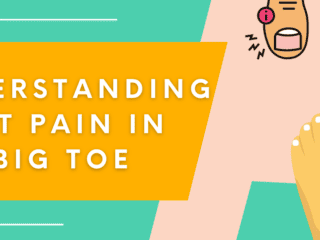Nail pitting, or the dents in the fingernails, might not look alarming initially, but don’t let that fool you. These could be linked to various risk factors like lifestyle or health issues, like a lack of vitamins in the diet.
This article tackles what vitamin and mineral deficiencies can cause dents in fingernails and guides you through how to work over them.
- Vitamin & Mineral Deficiencies That Can Cause Dented Fingernails
- What Are Dented Nails & What Causes Them?
- Common Vitamin & Mineral Deficiencies Associated with Dented Fingernails
- Causes of Vitamin Deficiencies
- What are some other signs of vitamin deficiency in nails?
- How to Address Vitamin Deficiencies
- FAQs
- Conclusion
- Related Posts
Vitamin & Mineral Deficiencies That Can Cause Dented Fingernails
1. Biotin (Vitamin B7): Biotin is essential for maintaining healthy nails, hair, and skin. A deficiency in biotin can lead to brittle nails and may cause dents or ridges.
2. Zinc: A zinc deficiency can negatively impact nail health, resulting in weak or brittle nails, ridges, or dents.
3. Iron: An iron deficiency can lead to anemia, which in turn can affect the appearance of your nails. This may cause nails to become thin, and brittle, or develop dents or ridges.
4. Vitamin C: Vitamin C is important for collagen production, which is essential for maintaining healthy nails. A deficiency in vitamin C may lead to brittle or weak nails, which could develop dents or ridges.
What Are Dented Nails & What Causes Them?
Nail pitting refers to dents, ridges, or holes in the fingernails or toenails. The dents can be either shallow or deep and are often found in people with psoriasis, an autoimmune disease that causes skin cell overgrowth and buildup. However, it can still happen to anyone, with or without psoriasis.
Dents, ridges, and holes in the nails can occur due to an issue with how the layers in the superficial nail plate develop. The superficial nail plate is the hard part of the nail made up of a protein known as keratin, which also makes up your hair and skin. The superficial nail plate protects the skin underneath.
Other symptoms also include:
- Nail discoloration (can turn into either white, yellow, or brown)
- Crumbling nails
- Nails separating from the nail bed (onycholysis)
- Blood forming underneath the nails
- Deformation of the nail
Causes Of Nail Pitting
Although nail pitting is often associated with people with psoriasis, the following health conditions could also affect nail health and cause nail denting:
- Sarcoidosis – A rare condition that causes small patches of swollen tissue (granulomas) to appear in the organs. One of its more notable symptoms is nail changes, which, aside from nail pitting, could include thickening, discoloration, and cracking.
- Atopic and contact dermatitis – Types of eczema that causes itchiness, rash, and bumps on the skin. While onycholysis is the more common nail condition, things like nail pitting, Beau lines, and onychodystrophy are also known to occur.
- Alopecia areata – An autoimmune disease where the immune system attacks hair follicles, impeding proper hair growth. Nevertheless, nail dystrophy can also occur among AA patients, with symptoms like brittleness, fragility, and pitting.
- Reactive arthritis – A type of arthritis that develops due to an infection. It can also cause symptoms of nail psoriasis, such as onycholysis, nail pitting, and pustules affecting the nail folds.
Why Healthy Nails Matter
Firm, healthy-looking nails aren’t just for appearances’ sake; they protect the hands, serve as a strong shield as you use them daily, and act as a barrier (the cuticle) to prevent environmental pollutants.
How the nails look can tell you something about your health too. Fingernails can indicate overall wellness because both the skin and the nails are mainly composed of keratin. Otherwise, it could indicate underlying health issues like vitamin deficiencies or hormonal imbalances and will first manifest themselves with the nails before to other parts of the body.
Common Vitamin & Mineral Deficiencies Associated with Dented Fingernails
Zinc
Zinc is known to may effectively reduce inflammation, boost immune health, reduce your risk of age-related diseases, hasten wound healing, and improve the skin.
Zinc likewise enables proteins, which include proteins in the nails. A 2013 article suggests that without enough zinc, the rate of nail growth decreases, and the nails become fragile and brittle, causing them to crack.
Protein
Proteins are comprised of amino acids, which the body uses to build and repair muscles and bones and make hormones and enzymes.
Eating enough protein in your diet is essential for boosting keratin production, which is integral to optimal hair and nail growth and health. Protein deficiency may affect the skin and nails, resulting in brittle nails and hair loss.
Magnesium
Magnesium is a cofactor in more than 300 enzyme systems that regulate diverse biochemical reactions and various processes in the body, including protein synthesis. It also acts as a natural calcium blocker, helping the muscle cells relax after contracting.
Adequate magnesium intake is important to nail growth and appearance, as it helps with protein synthesis and prevents vertical ridges in your nails and other deformations.
Iron
Iron is an important mineral that promotes growth and development in the body. Your body uses it to make hemoglobin, a protein in red blood cells that carries oxygen from the lungs throughout the body, and myoglobin, which provides oxygen to muscles.
Since iron is needed to provide the cells with adequate oxygen, it also affects optimal nail growth. An iron deficiency would negatively affect the nails’ shape and appearance, causing them to become brittle, cracked, and deformed.
B-complex vitamins
B-complex vitamins are known to improve your skin’s texture and moisture retention, reduce the appearance of fine lines and wrinkles, help the skin stay moist, even out skin tone, and reduce dark spots. Since nails are part of the skin, it also does wonders for nail health.
Biotin, or vitamin B7, promotes healthy cell growth and aids in the metabolism of protein-building amino acids that can help with the strength and quality of nails. Vitamin B12 promotes iron absorption and the development of red blood cells, which are crucial for keeping nails strong and healthy.
Folate (vitamin B9) promotes healthy nail growth by contributing to red blood cell formation and the development of new cells.
Vitamin C
Vitamin C is essential to skin and nail health, serving as an antioxidant and a critical factor for collagen synthesis, which gives shape, strength, and integrity to many tissues and is highly important to the fingernails, hair, and teeth.
Since vitamin C is integral to producing collagen, a deficiency in vitamin C can result in dented or brittle nails and slowed nail growth.
Causes of Vitamin Deficiencies
Inadequate dietary intake
Fruit, vegetables, grains, meat, poultry, and seafood contain various nutrients and minerals. Some vitamins are found in more than one type of food, and some foods are fortified with vitamins.
Certain diets can sometimes cause vitamin deficiency. For example, a gluten-free diet can make you deficient in vitamins like folate, iron, magnesium, calcium, and zinc, usually found in grains. Those who depend too much on processed foods and insufficient fresh fruits and vegetables tend to lack vitamins E and K.
People who follow a vegan or vegetarian diet tend to lack zinc and vitamin B12 since these nutrients are commonly found in meat and animal products.
Chronic illnesses
Experts say vitamin deficiencies are important risk factors for chronic diseases. Others believe that insufficient vitamin intake is an effect of chronic diseases.
Skin diseases such as eczema and psoriasis are frequently a result of vitamin deficiencies. People with diabetes or compromised immune systems have a higher risk of fungal nail infections. Health problems like those related to the intestines, such as Celiac disease, Crohn’s disease, and pancreatitis, can affect the body’s ability to absorb important nutrients.
Nutrient malabsorption
In some cases, people may eat enough healthy diets and still won’t feel any results due to nutrient malabsorption, which is the small intestine’s inability to absorb nutrients, leading to indigestion and malnutrition.
Kidney, liver, and digestive diseases can also hinder nutrient absorption, leaving patients vulnerable to other conditions and health risks.
What are some other signs of vitamin deficiency in nails?
Nails can provide clues about your overall health, including signs of vitamin deficiencies. It’s important to note that these signs can also be caused by other factors, so it’s essential to consult a healthcare professional for a proper diagnosis.
Some signs of vitamin deficiency in nails include:
- Spoon-shaped nails (koilonychia): This can be a sign of iron deficiency (anemia) or possibly vitamin B12 deficiency. Nails appear concave and thin, often resembling a spoon.
- Brittle nails: Nails that are prone to breakage, splitting, or peeling may indicate a deficiency in biotin (vitamin B7), iron, or essential fatty acids.
- White spots or lines (leukonychia): While these can result from minor nail injuries, persistent white spots or lines may indicate a deficiency in zinc or calcium.
- Beau’s lines: These are horizontal grooves or depressions that run across the nail plate, often appearing after a serious illness or stress. They can also be indicative of deficiencies in zinc, calcium, or vitamins A, C, or B12.
- Yellow nail syndrome: Nails that appear yellow, thickened, and slow-growing may be a sign of vitamin E deficiency.
- Pale or blue nails: Nails that appear pale or bluish in color can be indicative of anemia, caused by deficiencies in iron, vitamin B12, or folic acid.
- Dry, cracked, or peeling cuticles: These can be signs of deficiencies in essential fatty acids, biotin, or vitamin A.
- Pitted nails: Small dents or depressions on the nail surface can be a sign of vitamin D or zinc deficiency.
If you suspect that you have a vitamin deficiency, it’s crucial to consult with a healthcare professional who can help diagnose and treat the issue. Remember that nail changes can have multiple causes, and some may not be related to vitamin deficiencies at all.
How to Address Vitamin Deficiencies
Incorporating nutrient-rich foods into your diet
A healthy diet can help rejuvenate and restore skin elasticity. Fatty fish like mackerel, salmon, and sardines contain omega-3 fatty acids that promote nail growth. They’re also a good source of high-quality protein, vitamins A, E, iron, and zinc.
Tomatoes are a rich source of vitamin C and all major carotenoids, especially lycopene, which promotes collagen production, protects the skin from sun damage, and may help prevent wrinkling. Cocoa contains antioxidants and promotes hydration and proper blood flow, which are integral to the nails’ appearance.
Drinking lots of water is a must to achieve healthy skin and nails. Green tea also packs a powerful punch, making your nails strong and healthy. The antioxidants in green tea help prevent cracked and dented nails and strengthen them.
Taking vitamin supplements
Studies have indicated that supplemental bioactive collagen peptides benefit skin and nail health, improve nail growth, and reduce symptoms of brittle nails.
Taking vitamins A, C, D, E, and B-complex supplements can also help target specific causes and skin problems.
Consult a dermatologist
Your doctor will assess your symptoms and consider your health history to determine the possible causes of the nail pitting. It’s important to share symptoms you are unsure of since they might be connected, so it’s important to disclose everything you’re experiencing and those affecting your nails.
Usually, a skin biopsy is performed to identify infections or cell abnormalities. Since nail pitting doesn’t require treatment if it’s not causing discomfort, your doctor may prescribe a corticosteroid or immunosuppressive medication to relieve it.
FAQs
How can you determine if you have a vitamin deficiency?
The best way to determine any vitamin deficiencies is through a vitamin deficiency/nutrient test, which assesses vitamin or mineral levels in the blood. You can ask your healthcare provider to administer it or get a DIY finger-prick blood test kit.
Are there any long-term consequences of not addressing vitamin deficiencies?
Neglecting vitamin deficiencies can lead to things worse than dented nails, like severe health problems such as malnutrition, stunted physical and mental development, and an increased risk of life-threatening diseases.Â
Can vitamin supplements help improve the appearance of dented nails?
Regularly taking collagen, biotin, or keratin supplements can prevent further nail denting and damage. Supplements containing vitamins A, C, and B-complex, magnesium, zinc, and iron can also help with nail problems and other important health benefits.
Is it possible to have dented nails without having a vitamin deficiency?
Nail pitting is usually a symptom of underlying autoimmune skin conditions, such as psoriasis or sarcoidosis, which are frequently a result of vitamin deficiencies. However, since eczema, another factor in nail pitting is not an autoimmune disease, we could infer that it’s still fairly possible to have nail pitting, even without a vitamin deficiency.Â
Conclusion
Dented nails often result from autoimmune skin diseases like psoriasis and sarcoidosis and deficiencies in important nutrients like zinc, iron, magnesium, and vitamins A, C, E, and B-complex, which are all responsible for nail growth and appearance.
Eating nutrient-rich foods and nutritional supplements can provide enough of these essential nutrients to protect and improve nail health. Should the condition persist, consult a trusted dermatologist to discuss possible treatment options if the condition persists.
Disclaimer: this article does not constitute or replace medical advice. If you have an emergency or a serious medical question, please contact a medical professional or call 911 immediately. To see our full medical disclaimer, visit our Terms of Use page.
Related Posts
What Vitamin Deficiency Causes Sagging Skin?
Is There A Vitamin Deficiency That Causes You To Crave Salt?








